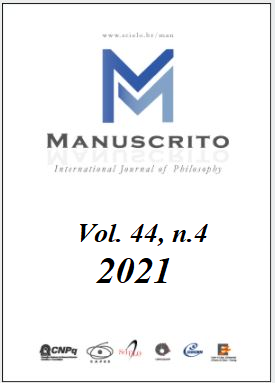Resumo
Anselm’s original argument for the existence of God seems to pull in opposite directions. On the one hand, it is not easy to see what, if anything, is wrong with it; on the other, it seems incredible that the existence of a being like God could be proved entirely a priori. This paper presents a diagnosis of what seems to be wrong with Anselm’s original reasoning. The diagnosis is general enough to be of use elsewhere, and it is this: conceptual possibilities are inferential dead-ends, not free inference tickets to prove any substantial claim. It remains to be seen if other versions of Anselm’s original insight, both contemporary and not, fall into the same conceptual possibility trap
Referências
Adams, R. M. (1971) “The Logical Structure of Anselm’s Arguments.” The Philosophical Review 80.1: 28-54.
Anselm, Proslogion. In Basic Writings. Ed. and trans. by T. Williams. Indianapolis, IN: Hackett, 2007.
Klima, G. (2000) “Saint Anselm’s Proof: A Problem Of Reference, Intentional Identity And Mutual Understanding”, in Medieval Philosophy And Modern Times, ed. G. Holmström-Hintikka. Dordrecht: Kluwer, pp. 69-87.
Oppy, G. (2021) “Ontological Arguments’, in The Stanford Encyclopedia of Philosophy (Fall 2021 Edition), ed. E. N. Zalta, https://plato.stanford.edu/archives/fall2021/entries/ontological-arguments/
Plantinga, A. (1974a) God, Freedom, and Evil. New York: Harper and Row.
Plantinga, A. (1974b) The Nature of Necessity. Oxford: Oxford University Press.

Este trabalho está licenciado sob uma licença Creative Commons Attribution 4.0 International License.
Copyright (c) 2021 Manuscrito: Revista Internacional de Filosofia


